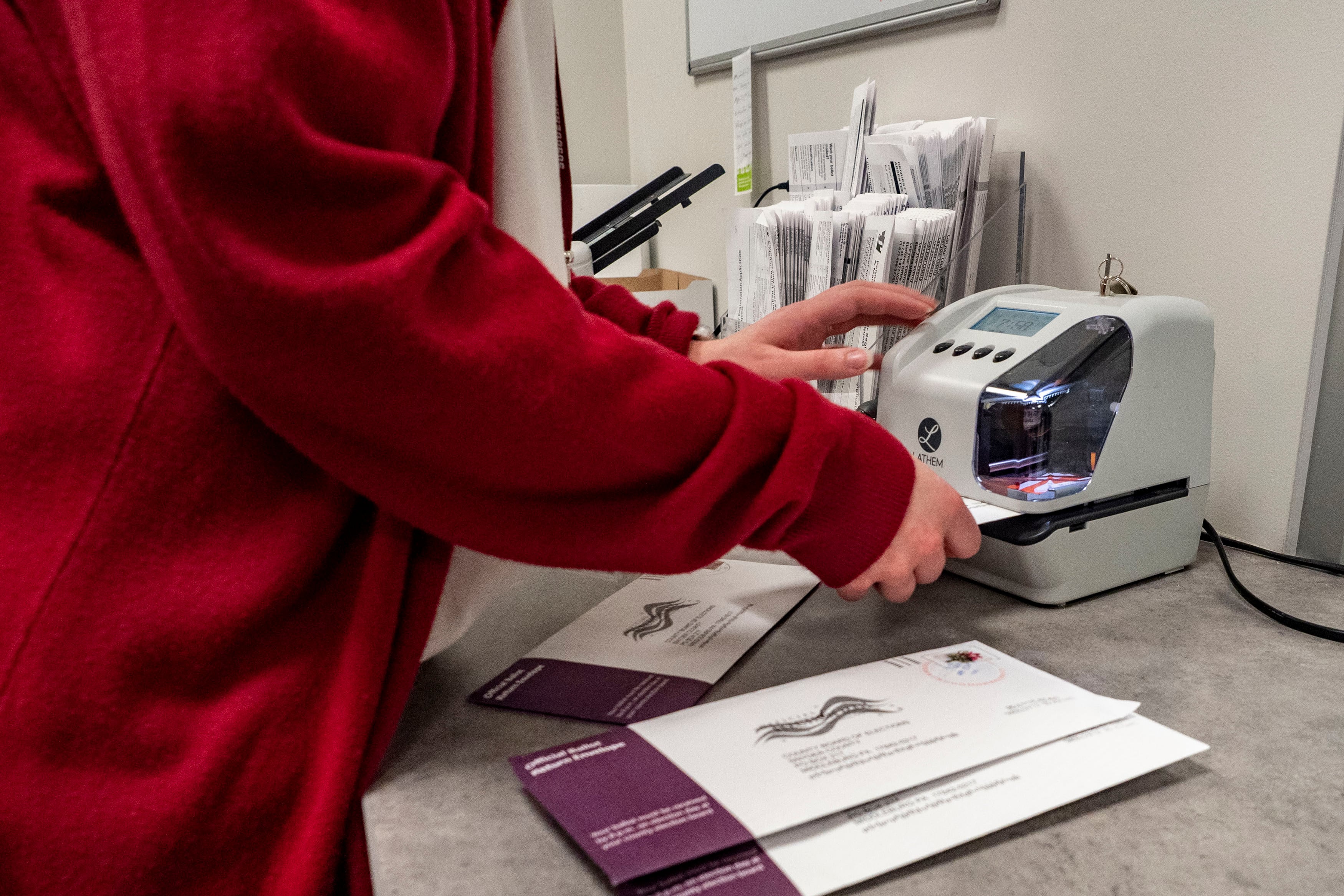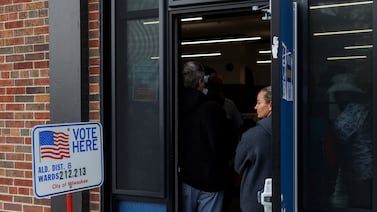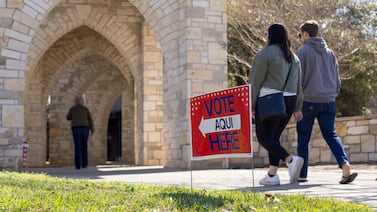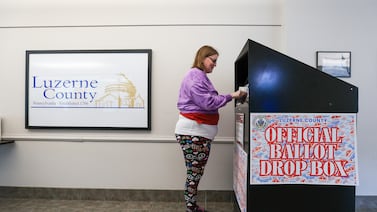Votebeat is a nonprofit news organization reporting on voting access and election administration across the U.S. Sign up for Votebeat Pennsylvania’s free newsletter here.
Pennsylvanians who vote by mail must write a proper date on their ballot envelopes for their votes to be counted, under a decision Friday from the state Supreme Court that could affect thousands of voters this November.
The decision voids an Aug. 30 Commonwealth Court ruling that enforcing the requirement on ballot dating violated voters’ rights under the state constitution. The Supreme Court’s 4–3 decision was based on whether the lower court had jurisdiction in the case, not on the merits of the underlying claim, meaning that the constitutional argument could be made again in court.
Republicans who appealed the lower court’s decision argued to the state Supreme Court last week that the petitioners failed to include all counties as parties to the case, among other claims. The original suit, brought by the ACLU of Pennsylvania and the Public Interest Law Center on behalf of a coalition of voting rights groups, targeted the Department of State, Allegheny County, and Philadelphia.
“The Commonwealth Court lacked subject matter jurisdiction to review the matter given the failure to name the county boards of elections of all 67 counties,” the Supreme Court wrote in its order Friday. The inclusion of Secretary of the Commonwealth Al Schmidt as a named party was not enough to give the Commonwealth Court jurisdiction in the case, the order said.
Adam Bonin, a Philadelphia-based election lawyer who was not part of this case but has represented Democrats in other lawsuits challenging the dating requirement, said that, barring another ruling, voters will need to write a date on their ballot return envelope in order for their ballots to be counted.
In a statement to Votebeat and Spotlight PA, Gov. Josh Shapiro said it was “unfortunate” the court did not side with voters.
“It should be clear that voters who make an inconsequential dating error deserve to still have their valid vote counted,” he said.
Republicans called the decision a “victory for election integrity” in a critical swing state.
“This is a huge win to protect the vote in Pennsylvania that will protect commonsense mail ballot safeguards and help voters cast their ballots with confidence,” RNC Chairman Michael Whatley said in a statement.
Justice David Wecht dissented with the majority, and called for the Supreme Court to address the constitutional claims directly and quickly, given the fast-approaching election. The court should exercise its “King’s bench” authority to bypass the normal judicial process and have the parties submit briefs on the issue directly to the Supreme Court, Wecht said.
He was joined in his dissent by Chief Justice Debra Todd and Justice Christine Donohue.
Steve Loney, senior supervising attorney for the ACLU of Pennsylvania, said his group would continue its fight on behalf of the voting rights groups that brought the case.
“These eligible voters who got their ballots in on time should have their votes counted and voices heard,” he said in a statement. “The fundamental right to vote is among the most precious rights we enjoy as Pennsylvanians, and it should take more than a trivial paperwork error to take it away.”
A spokesperson for the ACLU said the groups involved had not decided what their next move would be or whether to seek a direct ruling on constitutional claim from the state Supreme Court.
[Update, Sept. 19, 2024: After the Supreme Court’s ruling, the ACLU and Public Interest Law Center moved to amend their filing in Commonwealth Court to include all 67 counties. On Thursday, the Supreme Court clarified that that was not sufficient for the Commonwealth Court to have jurisdiction, and ordered the lower court to dismiss the case.]
Federal judges have gone back and forth over whether enforcing the requirement violated federal voting law. The current case is the first to directly challenge this requirement under the state constitution.
It’s the latest of several challenges to the dating requirement since the state implemented its mail voting law, Act 77, in 2020. Act 77 required voters to sign and date the outer return envelope of their mail ballots, and return the ballot in a secrecy envelope, in order for them to be counted.
Thousands of ballots are rejected each election for dating issues. During the April primary, counties rejected roughly 8,500 ballots, or 1.22% of those returned, for lacking a signature or date, or for being returned without a secrecy envelope, according to an analysis of Pennsylvania Department of State data. More than 4,400 of those were rejected for dating issues.
The ACLU and the Public Interest Law Center initiated the challenge earlier this summer on behalf of a coalition of civil rights groups, arguing that enforcing the date requirement violated the “free and equal elections” clause of the state constitution. That clause says that “no power, civil or military, shall at any time interfere to prevent the free exercise of the right of suffrage.”
In August, a majority of a five-member panel of Commonwealth Court judges agreed with them.
“The refusal to count undated or incorrectly dated but timely mail ballots submitted by otherwise eligible voters because of meaningless and inconsequential paperwork errors violates the fundamental right to vote recognized in the free and equal elections clause,” Judge Ellen Ceisler wrote for the 4-1 majority.
The Supreme Court’s ruling means the requirement is back in place, Bonin said.
Bonin noted that the challenges to the date requirement are still active on multiple tracks. An NAACP challenge to the requirement under federal law could be appealed to the U.S. Supreme Court, he said, and he is also representing clients challenging the requirement in a separate case.
The Pennsylvania Department of State was named as a defendant in the latest case, but did not defend the date requirement. In a statement, the agency said the decision was “disappointing” and left an important question unanswered.
“The Department hopes that this question is answered as soon as possible, for the sake of the voters and our county election administrators preparing for the upcoming presidential election,” the statement said.
Carter Walker is a reporter for Votebeat in partnership with Spotlight PA. Contact Carter at cwalker@votebeat.org.






